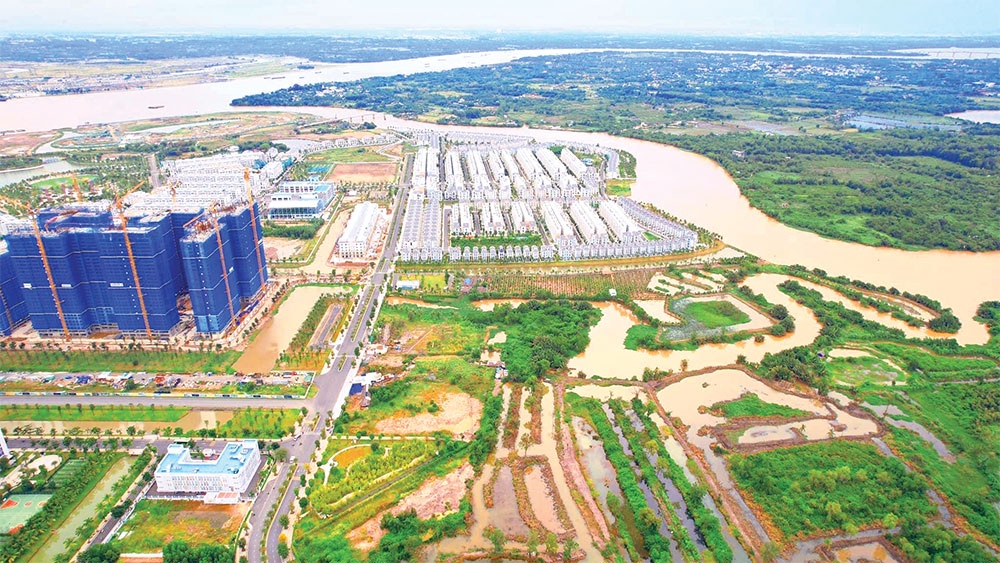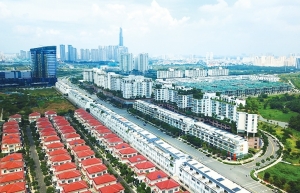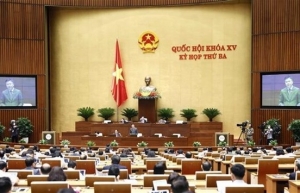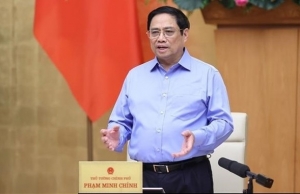More clarity urged for draft guidelines of new Land Law
In Ho Chi Minh City, many real estate businesses are concerned about projects that have been fully cleared and ready to hand over, as in the new draft law such projects will be put to auction to choose investors.
 |
| With public projects, the compensation price for agricultural land is lower than the real market price, Photo Le Toan |
Le Thi Bich Ngoc, deputy general director of Him Lam Real Estate, expressed her concern about how these cases will be dealt with when the amended law takes effect.
“The draft law and its guidelines must have clarity for dealing with this issue since it is a major problem for both investors and developers,” Ngoc said.
Nguyen Van Be, chairman of the Ho Chi Minh City Industrial and Export Processing Zone Business Association in Ho Chi Minh City, said land valuations were at a standstill as Article 113 of the amended law mentions agricultural land, but since 1993, land use nationwide has undergone significant change.
“I think that it being based on the 1993 milestone is going too far and unnecessary. There should be ‘hardware’ like the land price framework but ‘software’ so that the index may adjust. This would make it easier for localities to adjust their land price,” Be said. “Also, the lack of zoning for land use in Ho Chi Minh City makes it difficult for local people to cultivate their land.”
Nguyen Van Tu, a resident of the city’s Hoc Mon district, once purchased agricultural land of more than 1,000 square metres. This area has had an overpass planned but nothing has changed in the last 10 years, leaving Tu unable to do anything with the land. “My family wants to build a small house on the land and raise chickens and ducks, but the local authorities said that due to land planning problems, it cannot be built. It is a waste,” Tu said.
Duong Van Phuc, director of Hoc Mon Department of Natural Resources and Environment, said that Tu’s case was one of many that have existed over the years. When implementing public projects, the compensation price for agricultural land is much lower than the real market price. Therefore, local authorities cannot move forward with compensation and start their projects.
Do Dong Huong, director of Price Management at Ho Chi Minh City Department of Finance, said that the current Land Law determined land prices as per actual market prices. However, local authorities still could not avoid shortcomings as determining the land price was very difficult.
According to Huong, to determine land prices, there must be enough transfer information, which is not public and transparent in Vietnam right now.
“For example, currently relevant agencies and authorities do not have to compulsorily provide information on trading properties, so consulting units and state agencies face difficulties collecting information. This is regardless of whether the released information is truthful or not,” Huong said. “I think that the draft law on the auction of land use rights where the land has not been compensated for site clearance and resettlement is infeasible, as when the price is high, land owners will not be satisfied with the lower price, so cannot be compensated,” Huong said.
Nguyen Toan Thang, director of Ho Chi Minh City Department of Natural Resources and Environment, said that there were major issues that needed to be clarified, such as specific regulations on land leasing and bidding. “Otherwise, there would be entanglement when organising bidding and acquisition, repossessing land subject to state investment, implementing public investment projects, and separating compensation and resettlement programmes into sub-projects,” Thang said.
Phan Duc Hieu, standing member of the National Assembly Economic Committee, said the impact of land resources related to many areas and hugely affected environmental protection and climate change.
“If not used well, it will widen the gap between the rich and poor. The revised direction of the amended Land Law causes institutional issues. Land management policy must become the most important aspect of the law,” Hieu said.
The policy must also complete resettlement and land acquisition for the national public interest and economic development.
“The message of the central government is that resettlers must be equal or better after compensation. Improving land use efficiency is a highlight and the draft must be multi-purpose, covering areas such as agricultural production, tourism and resorts, agriculture, and processing factories and warehouses,” Hieu added.
| The draft amended Land Law will be released for public feedback in January 2023 after being submitted to the National Assembly for consultation this month. The second submission will be at the fifth meeting in May next year, and it will be finally considered and approved at the sixth meeting in October 2023 if there are no further issues. |
 | Delayed Law on Land holding up real estate The delay in revising the country’s land laws has made negative impacts on the real estate market with many halted projects due to unclear and overlapping guidelines, subsequently causing new supply limitations and increasing the risk of a market bubble. |
 | Government proposes delay to submission of draft amended Land Law to NA The Government has proposed a delay to a submission of the draft Law on Land (amended) to the National Assembly (NA) until the Party Central Committee issues directions on reforms of land-related policies and laws. |
 | PM urges thorough consideration, prudence during Land Law revision Prime Minister Pham Minh Chinh on August 24 requested thorough consideration and prudence during the revision of the Land Law, which deals with a wide scope and relates to many other laws. |
What the stars mean:
★ Poor ★ ★ Promising ★★★ Good ★★★★ Very good ★★★★★ Exceptional
Related Contents
Latest News
More News
- Dong Nai experiences shifting expectations and new industrial cycle (January 28, 2026 | 09:00)
- An Phat 5 Industrial Park targets ESG-driven investors in Hai Phong (January 26, 2026 | 08:30)
- Decree opens incentives for green urban development (January 24, 2026 | 11:18)
- Public investment is reshaping real estate’s role in Vietnam (January 21, 2026 | 10:04)
- Ho Chi Minh City seeks investor to revive Binh Quoi–Thanh Da project (January 19, 2026 | 11:58)
- Sun Group launches construction of Rach Chiec sports complex (January 16, 2026 | 16:17)
- CEO Group breaks ground on first industrial park in Haiphong Free Trade Zone (January 15, 2026 | 15:47)
- BRIGHTPARK Entertainment Complex opens in Ninh Binh (January 12, 2026 | 14:27)
- Ho Chi Minh City's industrial parks top $5.3 billion investment in 2025 (January 06, 2026 | 08:38)
- Why Vietnam must build a global strategy for its construction industry (December 31, 2025 | 18:57)

 Tag:
Tag:



















 Mobile Version
Mobile Version